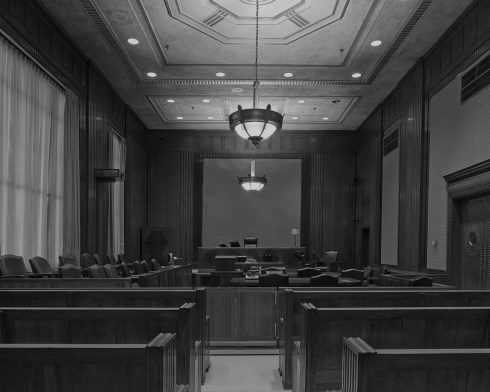In order for a foreign judgment or an arbitral award to be enforced in Turkey, certain enforcement procedures must be executed. Even though the procedure itself seems to be straight forward, applicants need to overcome some hurdles before gaining enforceability. In this article, the ins-and-outs of the enforcement procedure will be explained in the form of answers to frequently asked questions
Q: Can a judgment/award rendered in a foreign forum be automatically enforced in Turkey?
A: It is not possible for either foreign judgments or arbitral awards rendered in foreign jurisdictions to be automatically enforced and executed in Turkey. To achieve this, the applicant must go through an enforcement procedure in the form of a court action as described in art. 50-63 of the Code of International Private and Procedural Law no. 5718. It must be stated though that the procedures stipulated for the enforcement of foreign judgments and awards are different.
Q: How does the procedure for the enforcement of foreign judgments work?
A: Although Turkey is not currently a member of the European Union, the legislation that regulates the enforcement of foreign judgments has been amended as such. In this regard The Code of International Private and Procedural Law no. 5718 entered into force on 12 December 2007 with the intention to form a legal system which is more compliant with the international agreements to which Turkey is a party and with the recent amendments on national legislation.
Foreign judgments which have become final after all appeals (if any) may be executed in Turkey through enforcement proceedings.
A number of minimum documents need to be produced in order to initiate enforcement proceedings, such as:
- The original of the foreign judgment, and
- written confirmation that the judgment is final.
According to the Code of International Private and Procedural Law, a foreign court judgment may be enforced in Turkey if;
- there is an effective treaty between the country of the foreign court concerned and Turkey providing for the reciprocal enforcement of judgements; or
- there is a de facto reciprocity, in other words the courts of the relevant foreign country enforces the judgments rendered by the Turkish Courts; or
- there is a provision in the law of such country which provides for the enforcement of judgements of the courts of Turkey.
A foreign judgment may be enforced in Turkey if the judgment rendered by the foreign court is not subject to the exclusive jurisdiction of Turkish Courts or on condition that the defendant objects, if the same is not rendered by a court which deems itself competent even though the same does not have any real relation or link with the subject matter of the case or with the parties.
Furthermore, under the Code of International Private and Procedure Law, Turkish Courts will only enforce a judgement of a foreign court if the judgement is clearly not against Turkish public order and where the person against whom enforcement is sought does not raise objections in the courts of Turkey to the effect that he was not duly summoned to or represented at the foreign court or that the judgement was rendered in his absence in violation of the laws of the foreign country. The court in Turkey would disregard any such objection that it determines to be without sufficient foundation.
Q: How is the procedure different in the enforcement of foreign arbitral awards?
A: In 1992, Turkey has become party to the New York Convention of 1958 on the Recognition and Enforcement of Foreign Arbitral Awards. Accordingly, the Code on International Private and Procedural Law was enacted and the latest revision came into force on 12.12.2007, governing the process for the recognition and enforcement of foreign court decisions and arbitral awards in Turkey. Foreign arbitral awards which have become final after all appeals (if any) may be executed in Turkey through enforcement proceedings.
The following minimum documents shall be required to be produced when enforcement proceedings are issued:
- The original or notarized copy of the arbitration agreement
- The original or notarized copy of the signed award. If the award is not appealed then written confirmation from the arbitrator/arbitral tribunal that the award is final or that it has not been appealed, if the award is appealed, the finalized version of the arbitration award.
These proceedings are purely “procedural”; meaning that the court does not delve into the merits of the award itself. The Code No.5718 sets out the specific procedural grounds on which an enforcement action may be rejected by the Turkish courts, which are:
a. If there is no arbitration agreement or an arbitration clause in the agreement
b. If the award is in violation of public order and morality,
c. If Turkish Laws do not allow for the dispute subject to arbitration award to be resolved by arbitration,
d. If the parties have not been duly represented before the arbitration panel and have not subsequently explicitly accepted the transactions that have taken place,
e. If the party against whom the award is being enforced, did not receive proper service of notices of appointment or was deprived of the opportunity to issue claims or counter claims, using their right to a fair trial. This is the most common defence 3 raised in enforcement proceedings by Turkish respondents,
f. If the arbitration clause or agreement is in violation of the law of the place agreed by the parties; otherwise, lacking such agreement, if the clause is invalid according to the laws of the country where the arbitration award has been given,
g. If the appointment of the arbitrators or the application of the procedure by the arbitrators is in violation of the agreement between parties, or the law of the country where the arbitration award has been given,
h. If the arbitration award does not relate to the matters included in the arbitration agreement or clause or if the content of the award is exceeding the limits of the agreement or the clause,
i. If the arbitration award is not finalized pursuant to the provisions of the law of the place where the award is given or the law to which it is subject; or the award is not enforceable or it is not binding or it has been annulled by the relevant authority
Q: What are the costs involved in the enforcement proceedings?
A: Under Turkish Law, when bringing an action before a Turkish Court, the Applicant shall deposit the relevant court fees corresponding to 6.831% (for the year 2015) of the claim amount on a pro rata basis. A quarter of these fees is payable in advance whereas the remaining ¾ will be payable when collecting the first instance court’s judgment, if the Court rules in favour of the plaintiff.
It must be pointed out that in practice, due to a problem in the National Judiciary Network System, cashiers’ offices collect the court fee on the fixed basis instead of the pro rata basis described above. This error is dealt with after the filing of the action, when the court issues an order for the deposition of the difference between the pro rata fee and the fixed fee. Although this mishap does not cause any loss of rights for the applicant, it still makes the process of commencing an enforcement action complicated by adding an unnecessary extra step. On the other hand, in recent judgments the Court of Appeal has ruled that fees for commencing enforcement actions shall be calculated on the fixed fee basis but a unified front has not been established between the chambers of the Court of Appeal in this regard.
Furthermore, a foreign plaintiff may be required by the enforcing court to deposit security for costs at the beginning of the proceedings unless there is a bilateral or multi-national agreement waiving such security requirement. Turkey is party to several treaties that dispense with the need for security.
Q: What measures should be taken in the foreign court or arbitral proceedings in order to avoid potential defences?
A: In practice, the main hurdle that the applicants are faced is to prove that the opposing party has been duly notified of the court/arbitral proceedings. This is an issue prevalent in the international commercial arbitration community where opponents refuse to be served and deny notification in an effort to delay arbitral proceedings and avoid subsequent enforcement of awards. As stated above, the opposing party must be duly notified of the proceedings and of the judgment/award issued. Complications arise when it becomes necessary to prove that the opposing party has received service and was aware of the proceedings.
To avoid such complications, it is recommended firstly to make sure that the address of the opposing party is up-to-date at the time of service. When a company is concerned, their registered office address can be obtained from the Trade Registry.
Further problems related to service may arise in the enforcement of arbitral awards since in most arbitrations, service is affected by e-mail for the purpose of time and cost efficiency. This problem can be avoided by affecting service through post/cargo/courier where obtaining confirmation of service is possible or by way of service through a Turkish notary public, the latter of which would be the safest way since a confirmation of service would be provided and also kept at the notary’s chambers. Nonetheless, when the charm of e-mail communication and the fact that it is pretty much indispensable in this age is considered; if nothing, requesting read receipts may prove to be very beneficial in proving due service later in the enforcement action.




